Discussions in contemporary German poetry
I met Maarten this February for a translation weekend in preparation of the City2Cities Festival in Utrecht. Afterwards, Maarten asked me to write an article about recent discussions in contemporary German poetry for the online magazine Samplekanon. I must admit, an introduction into contemporary German poetry is something I myself would wish to have. And I told Maarten that the article would be personal, I told him it would be written from a specific position and that it would therefore be a partial account of a field with fuzzy edges. Maarten encouraged me to stay calm and carry on. So here we are.
As I am well aware, I cannot expect any of the readers of Samplekanon to know me or any of my work. My name is Max Czollek, I was born in 1987 in (East-)Berlin where I also grew up. I published my first book Druckkammern (Verlagshaus j.Frank) last year. In 2009 a few friends and I founded G13, a collective of young poets. Because it might help to understand the discussions I am about to describe I will start by briefly outlining how G13 has reached a certain amount of recognition as a the face of young poetry from Berlin. Things have developed somewhat organically: we started off by meeting every second week to talk about our poetry. When the first members went abroad in 2010, we established a blog that rapidly became the locus of our present work, of fierce discussions and an updated schedule for readings and tours. This October it is going to be the fourth time that we will arrange our texts into a performance and travel through Berlin’s German-speaking outback (Germany, Austria, Switzerland). After we had done our first larger readings in 2010 we started to look for a way to assemble our texts into something people would possibly want to take with them after the show. This is how our first anthology 40% Paradies. Gedichte des Lyrikkollektivs G13 came into existence, published 2012 by Luxbooks. Developments have been marvelous and rapid so far.
Mapping contemporary German poetry
This article is supposed to be about contemporary poetry and its discussions. In the following, I want to do two things: demarcate an area which I will then define as the field of contemporary German poetry and point out a few discussions in which I am involved. Concerning the demarcation my focus is going to rest on the younger poets, poets that are, let’s say, up to 30 years and that, for the most part, have not yet published a book. Presently, young German poetry flocks together around three places: Hildesheim, Leipzig and Berlin. This accumulation is easy to explain. Hildesheim and Leipzig, because they shelter the two institutions in Germany where one can study creative writing. It is safe to say, therefore, that they constitute a laboratory for new forms of poetry. Berlin has established itself mainly as a city of residence for poets of all ages because of an attractiveness it presently radiates – living is cheap and culture is rich. A brief survey done among colleagues and friends leads me to assert that roughly 72,4% of all published German poets currently reside in Berlin while, for younger poets, they will be evenly spread between Leipzig and Berlin, fewer still in Hildesheim. There are, of course, many young poets living outside of the three towns but from the perspective taken in this article they have not yet developed a considerable poetic momentum and decisive impact on present discussions within younger contemporary poetry.
Evidently, the two schools for writing based in Leipzig and Hildesheim exert an important influence on younger German poetry. If one wishes to inquire about contemporary discussions one needs to understand the character of this influence. For one, the most significant magazines for publishing young poetry are based in these two cities: Edit in Leipzig and Bella Triste in Hildesheim. They help to shape the way an interested public perceives of new and young poetic voices. Secondly, and more profoundly, the magazines display a certain style that entails a specific body of implicit rules and norms that have developed within the two academic institutions. This style in turn affects not only the poetic production of these institutions (all exceptions granted!) but its influence is tangible as an important landmark for contemporary poetic production all over Germany. This is one reason, then, why the discussion about poetry, its functions and its desirable form is shaped by this perspective. If I would intend to delineate this style, this body of norms, I would call it „disciplinary“. I choose this term because the writing it encompasses is oriented towards the discipline of writing and the theories associated with an academic education (I will come back to this later).
Before giving too much attention to these institutions one should look further. The number of publishing houses has been on the rise for the last years and one can find publishers that cover a wide variety of different poetics: KOOkbooks, the most important German publishing house for poetry whose poetics have exerted a great influence over the past years and can be situated close to the “disciplinary” approach mentioned above; the Verlagshaus j.Frank, also based in Berlin and of a slightly younger age might be seen to represent the poetic counterthesis to KOOK proclaiming the reintroduction of urgency and relevance (contested terms, I know) into the sphere of contemporary poetry; one must also mention Luxbooks, famous for its translations of American poetry but also important for the German-speaking context; Roughbooks, a more experimental and by now almost traditional publishing house based in Switzerland; furthermore Fixpoetry, Poetenladen, Edition Azur, yedermann, parasitenpresse, as well as houses not specifically focused on poetry but with a poetry-publishing branch such as Suhrkamp, Berlin Verlag, Hansa Berlin, Hochroth, Schöffling, Wallstein Verlag, and many more.
The absence of history
Considering this list above one may wonder how there could be any gap left. Shouldn’t there be a poetics for everyone? And the “disciplinary” mode would only be one more contribution to the colorful garden of contemporary German poetry. Why is it, then, that I deem this set of rules, this outline of a specific style as problematic and monotonous? Trying to explain my position in this discussion I will start off with an hypothesis: in contemporary poetry as well as in the writing of younger German poets one thing is systematically absent: history. In the following, I will try to argue in favor this hypothesis and hope that a lack of information on the side of the reader will not render my arguments selective. It is more a mode of thought I will try to propose whose relevance can also be judged from afar.
To be fair, even a brief look on recent publications and prices distributed to poets allows for the impression that history is not at all absent from the general field of poetry. Isn’t there continuous reference to the Holocaust? Didn’t Nora Gomringer win the Ringelnatz Price under special mentioning of her Auschwitz-poem “Und es war ein Tag“? Isn’t there a strong sense of history and its presence in Günther Grass’ controversially discussed poem “Was gesagt werden muss” ? Weren’t political and historical aspects the most discussed and written-about topics of the 70s and 80s? Regarding this background, the rejection of history and its presence in younger poetry seems all too understandable. Why the fuss, then?
These are the arguments that are usually brought forward if I argue with my fellow young poets and friends in poetry about this alleged presence of history in contemporary German poetry. To them, I usually answer: yes and no. For one, the superficial evocation of something does not at all imply its confrontation, it might as well mean its domestication, a way to deal with its pressing presence by talking about it in a specific and ritualized way. Although virtually everybody agrees that this is bad poetry in terms of aesthetics, one needs to take a closer look at it. A striking characteristic of these poems is the ritualized manner in which history is addressed, the repetitive imagery employed that evolves around ever the same monotonous binary constructions: empathy and horror, doomed history and saved presence, Black milk, trains, Schindlers List, etc. In political poetry from the 70s and 80s, discussions of political issues did not really concern the poetic function of poetry at all but rather present a form of political agitation that simplified the poem, subjected aspects to the message and became a tactical element in the political sphere. This is not the presence I am talking about. And it is not its lack either. In both cases history remains outside the poem exhausting itself in mourning, empathy and its strategic employment.
I would want to maintain that both, the “dark” 70s and 80s as well as its anti-thesis in “disciplinary” young poetry (I will drop Gomringer and Grass because it is too easily rejected as bad poetry) do not confront the issue of history and its presence as I see it. I will turn back to Leipzig and Hildesheim, then, to emphasize on the rules and norms I have called “disciplinary”. Accordingly, and very interestingly so, I find that these norms and rules have a peculiar way of stabilizing the same discursive absence of history, not by agitation but by establishing a set of abstract criteria that preclude these aspects alltogether. The self-declared goal of the “disciplinary approach” is to decenter the sphere of content in order to achieve a positive critical practice focusing on the future. For this, one must generate a certain equilibrium within the material employed, an attentive equality that allows the rewriting of language and its modes of hierarchization. In turn, this almost naturally excludes material that is historically charged, because its use would disturb the deliberate equilibrium that wants to move away from content.
This is not to argue that history and its presence do not matter to the writers that write in the “disciplinary” mode but that the very normative level of writing serves to exclude aspects in language that would lead to an overweight of the historical memory within language. Why is this absence a lack? – I think I must explain the assumption underlying my argument: if postmodern poetry (and we all are part of a postmodern condition) means to get away from the idea of progress, to circle in history, to invert the poetic perspective to the means itself, then the history enclosed in language, its presence in nature and cityscapes, its relevance for our knowledge, perspective and desire is a relevant focus for poetic work. It is this focus that is systematically excluded in the “disciplinary” mode.
What is most striking about this falling silent is that it occurs all over the field of contemporary poetry – the one I have called ritualized and the other I have called “disciplinary” and identified as anti-thesis to the former. While the ritualized mode employs repetitive imagery to speak about history and its presence in always the same manner, the “disciplinary” mode stabilizes its absence by a norm that requires a shift in focus altogether – the rewriting of language within the poetic practice towards a better future. The latter mode cuts the reflection upon language in half, excluding the presence of history it entails. Isn’t it still the same language we use, the same words and connotations? Aren’t we evoking the past in every second sentence we speak, every road we tumble down late at night, happily drunk past old and new buildings, new parks and hills?
To be sure, there are poets that have previously worked on this topic: Thomas Kling, Ulf Stolterfoht, Björn Kuhligk, Marcel Bayer, to name only a few. They are the exception. The ritualized way to speak and its anti-thesis of excluding historically charged language from contemporary poetry constitutes a condition for contemporary writing that systematically excludes the presence of history within poetic practice. An exclusion especially peculiar since it is contemporary poetry that has been priding itself for reflecting upon its means, i.e. the modes in which language is used, produced and rearranged.
Symptom or cure
It is here that I want to turn to a discussion we have previously had on the G13-blog. Back in December, Linus Westheuser posted an article that summarized his position on the connection of poetry and politics. He developed his argument within the conceptual triangle of politics-poetry-subject. The role Linus designates for poetry is the rearrangement and denaturalization of things we usually take for granted. This function, totally in line with the “disciplinary” mode of writing, intends to get away from hierarchical language by opening up possibilities within the poetic practice. This, Linus concluded, is not the actual change required to achieve a material situation of dehierarchization (which could only be political) but poetry takes the position of a vision, a momentary practice that constitutes the perspective of a freer world to come.
I responded by introducing a conceptual separation between political and the critical practice (poetry ideally being the latter). I wrote that the political is polemic and ritualized while the critical is continuously questioning even its own foundation (which the political doesn’t and cannot). This is why it is so hard to use poetry in politics, or why poetry almost inevitably turns bad if used for political ends. As a second conceptual extension I introduced desire as a concept that mediates between society and subjectivity. Desire does not originate in the subject but is the result of a certain socio-historical position. Any subjective desire to write poetry must therefore be interpreted as shaped by this position. Even the most critical poetic practice is governed by a desire to do so (and not the other way around). This desire, however, is in itself the manifestation of a certain power-structure inscribed into and expressed by the subject. I concluded that, as long as poetry is not reflecting on its own historical position, as long as it does not raise the question of silence and only continues to affirm its own modus operandi it is a symptom and not a cure.
Following this brief outline I can reformulate the discussion in my own terms: the systematic absence of history within contemporary poetry points to the strategic position the poetic practice occupies with regard to subjective desire and, ultimately, to its socio-historical position. As such, the spaces of positivity and silence created within contemporary German poetry must be seen as symptomatic for a German condition. The ritualized model as well as its anti-thesis, the “disciplinary” mode developed and maintained in institutions that exert a considerable influence on young poets in Germany is continuing to raise questions of poetic practice within this immanent rejection of history and its presence: don’t we also concern ourselves with the future because it is a way to get rid of the past? And if this cause-effect is too assuming, shouldn’t we at least ask ourselves which of our desires is fulfilled if we choose to write in this mode?
Gegenwartsbewältigung
I argue that the past is present in our language. It cannot be pushed aside by excluding certain words and it comes back to us in flashbacks. It shapes our mode of thinking and knowing, our perception of the world, art, and politics. It also shapes the way we become subjects and express the desire to do certain things. I have not invented this position. I rather want to highlight that it connects to questions outlined in the works of poets as famous as Paul Celan, Thomas Kling and Ernst Jandl. If I was to convert my position into Celan’s terminology I would write: poetry must be based on a conscious decision for a structuring of the pneumatic sphere. Writing is a choice and may be reflected as such. It includes – and in a way always excludes – silence. A silence that forms the center of the past and whose evocation in writing is an act of remembrance.
Writing, therefore, rests on a preordained relationship between the subject and its objects. It is a practice that cannot do without the author and its socio-historical position. Last of all and most importantly, writing has to know about itself, it has to show the ability that characterizes art: to refuse any form of affirmation except to itself. To question continuously what the subject and society believes in, enjoys, disapproves of and sanctions.
In this article, I have set out to talk about young German poetry and its discussions. Instead of offering a general overview, I have formulated a position on discussions concerning poetic practice where it touches my own writing. By this, I have focused on the second use of the term “contemporary” defined by Oxford dictionary as “1. living or occuring at the same time” and “2. belonging to or occurring in the present”. What I have been delineating was contemporary in the sense that it belongs to the same time and the same present as what it is trying to outline. These discussions take part now, in the still blurry field of young poetry. I am one of its agents. Therefore I have therefore tried to formulate a strong and convincing position. It is by no means complete but I hope that it triggers discussions and that it helps the reader to get a first insight into things that are happening in German poetry at this very moment.
De Berlijnse dichter Max Czollek (1987) is een van de oprichters van G13, een groep van jonge dichters uit Berlijn. Hij heeft al veel literaire publicaties op zijn naam staan, zowel op internet, als in diverse tijdschriften en anthologieën zoals Georg Heym, Ich bin von dem grauen Elend zerfressen, Gedichte und Erwiderungen (2012) en 40% Paradies en Gedichte des Lyrikkollektivs G13 (2012). In 2012 kwam ook zijn debuutbundel Druckkammern uit. Daarnaast promoveert Czollek aan de Universiteit van Berlijn in Politieke Wetenschappen. Sinds 2012 werkt hij in Londen en Berlijn aan zijn PhD.
Afbeelding: Frederik Jurk
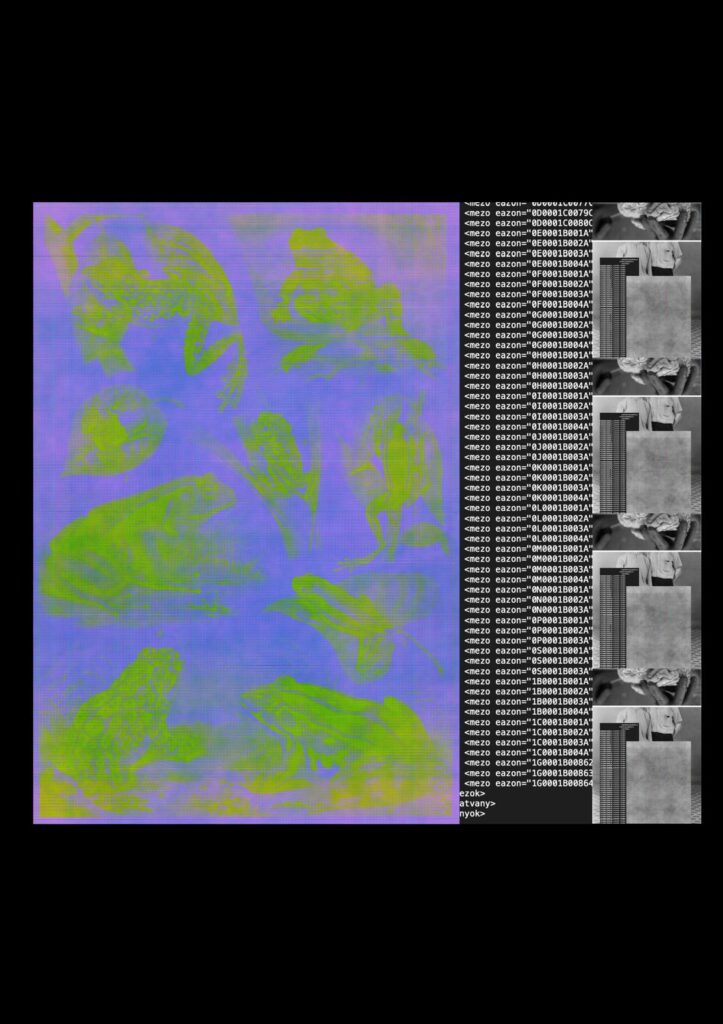
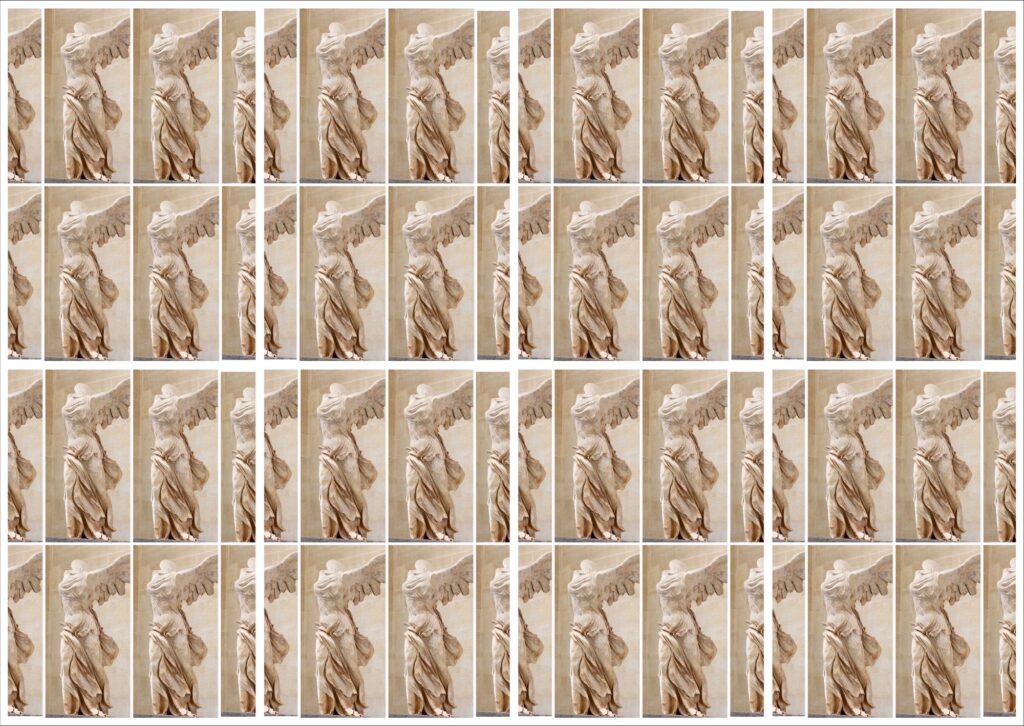
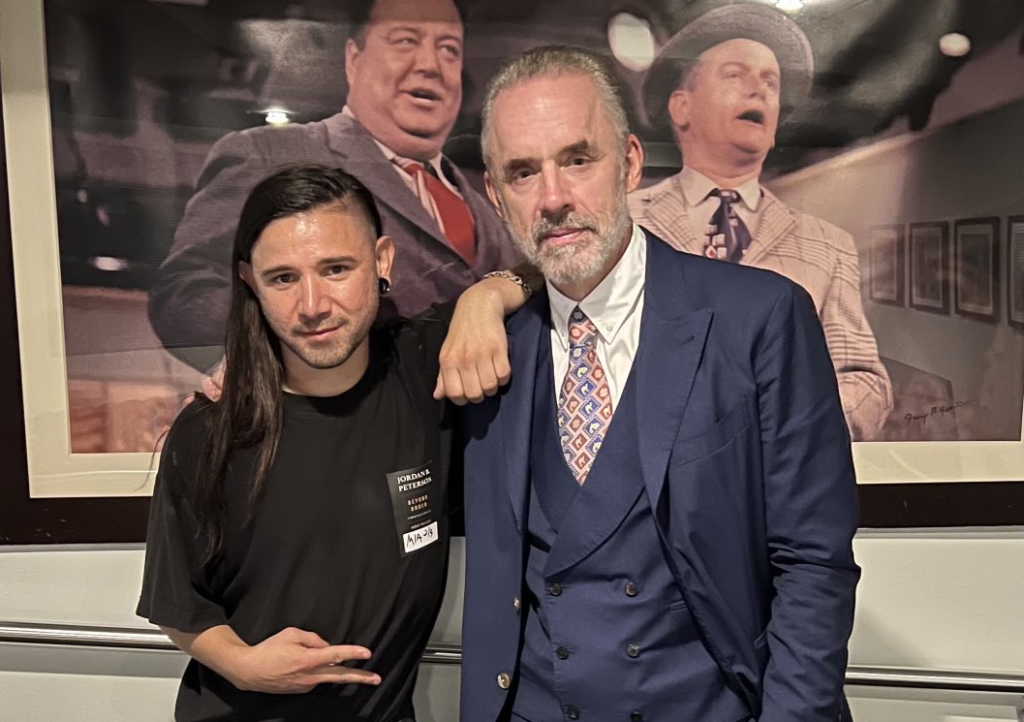
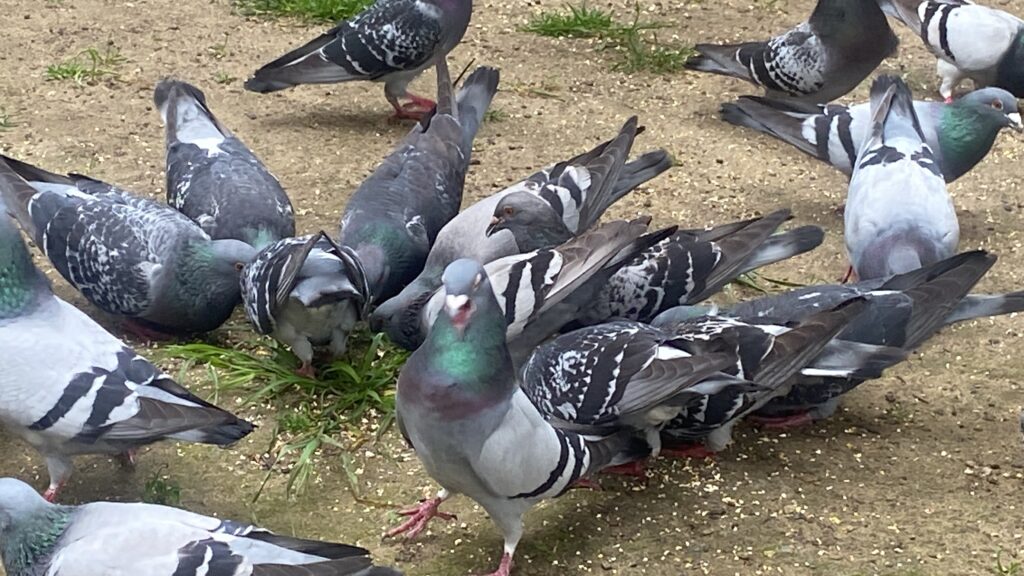
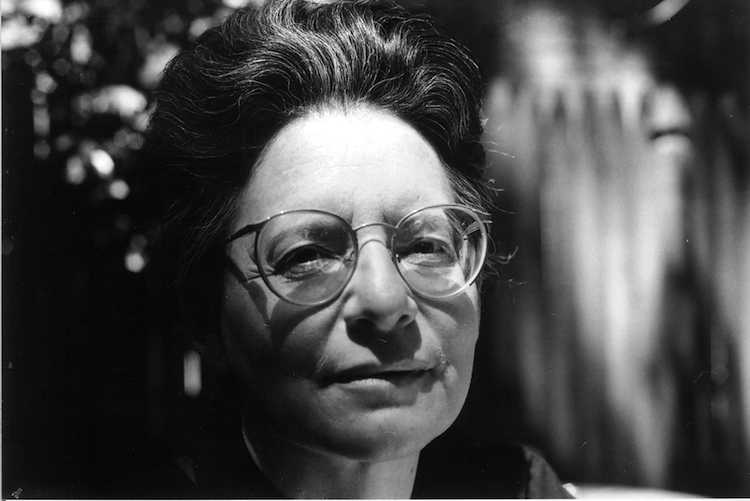

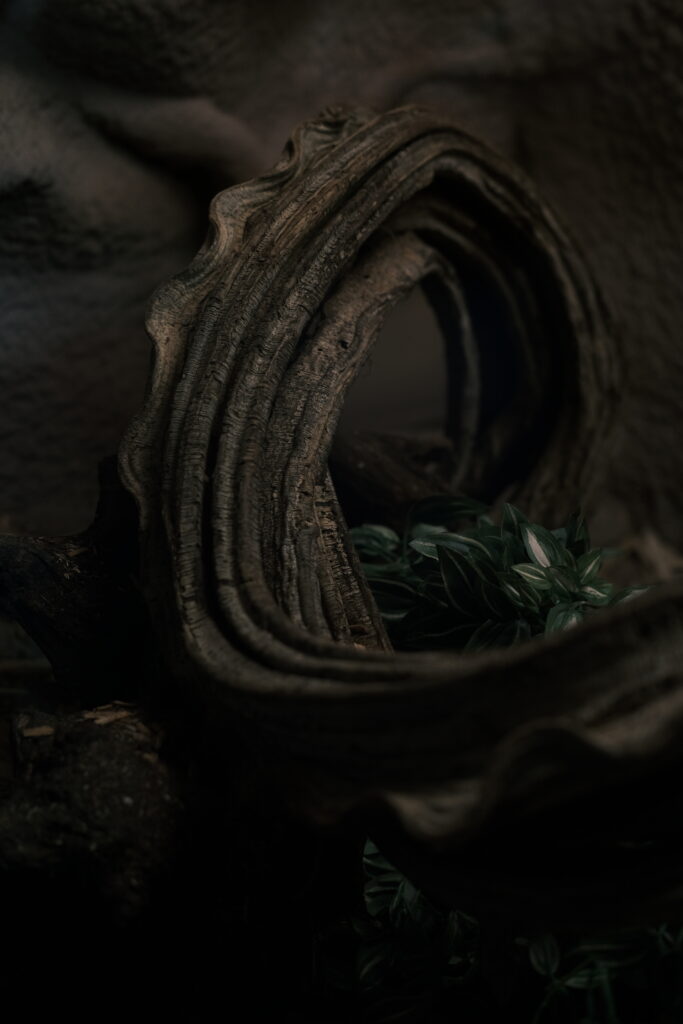
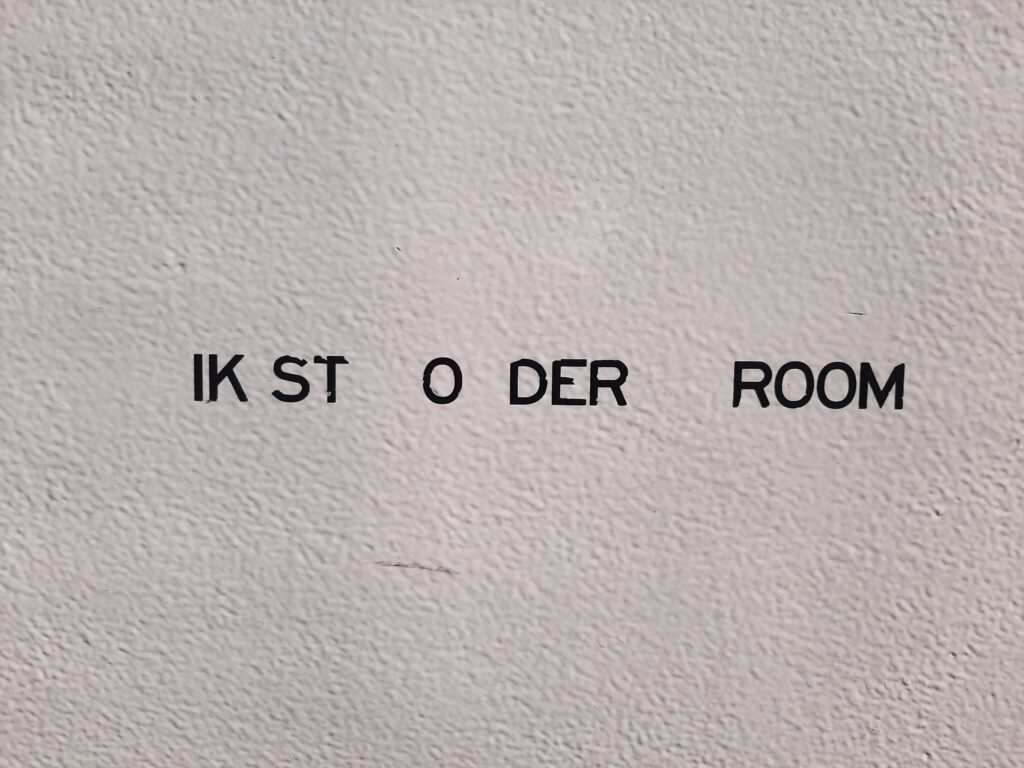


2 thoughts on “Max Czollek – Dealing with the present”
Comments are closed.